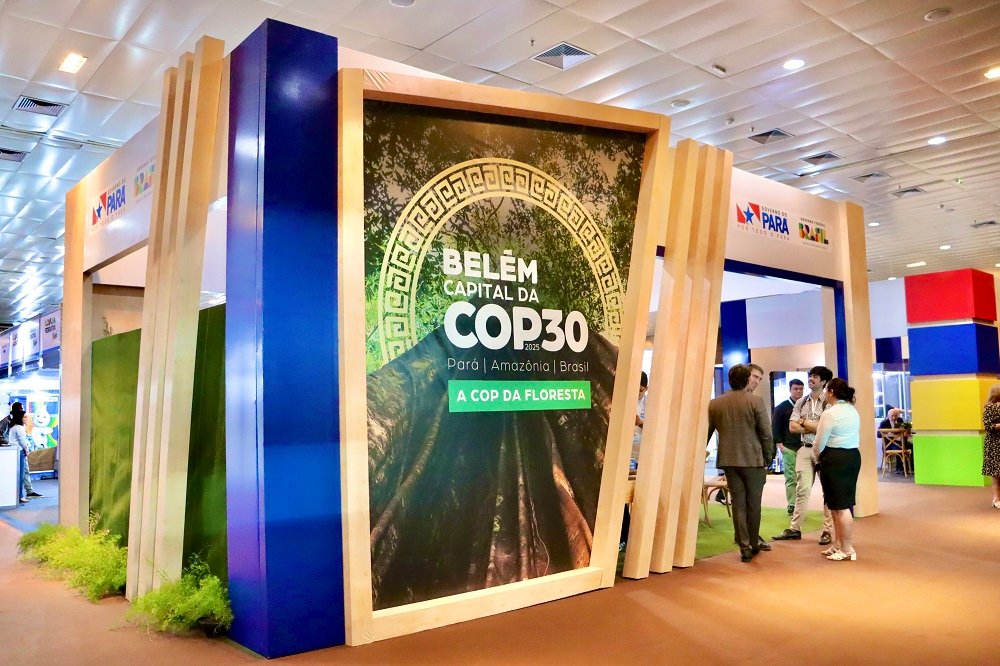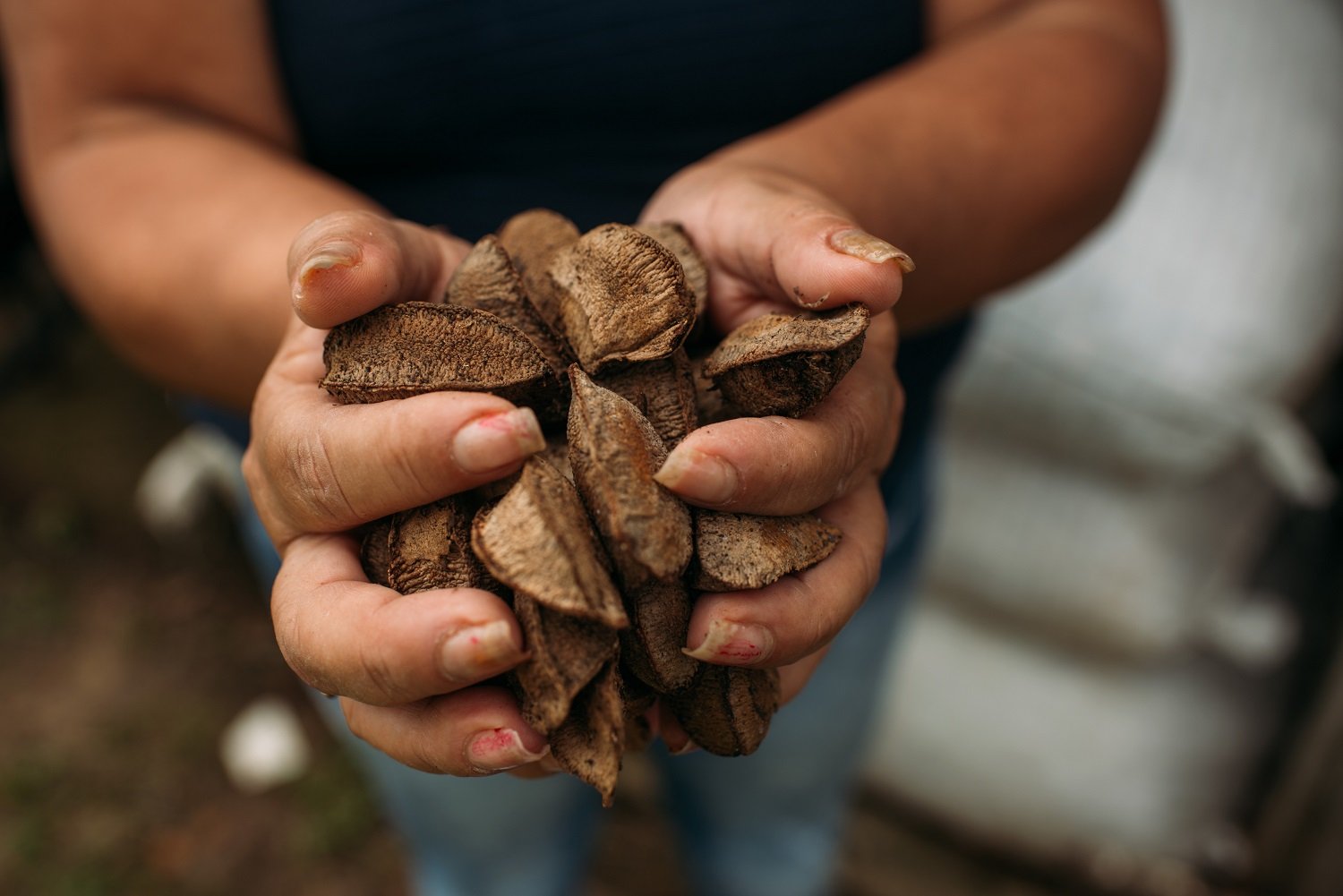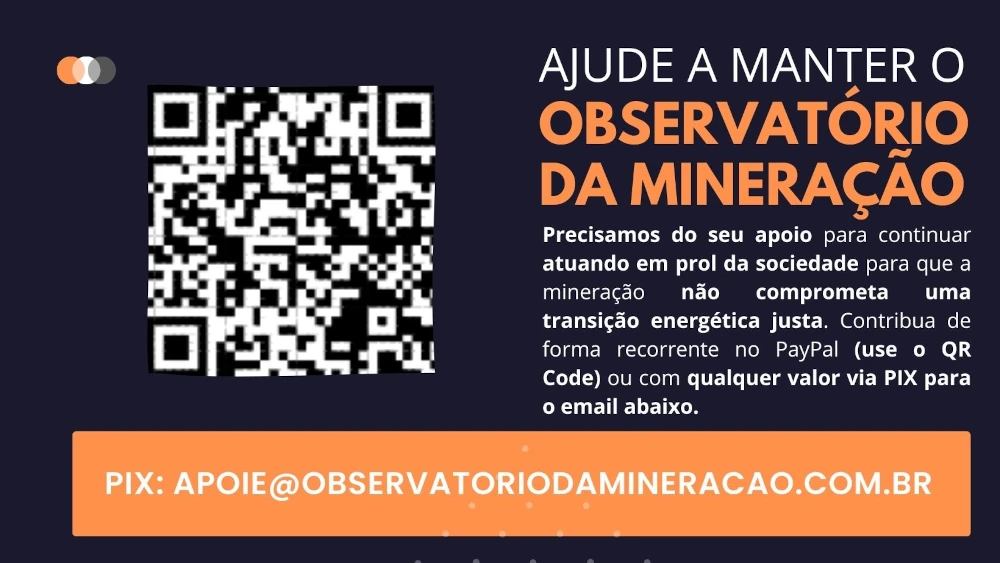Original story by Maurício Angelo, translated by: Gabriela Sarmet
Almost six years after the dam collapse of Vale and BHP in Minas Gerais, the Renova Foundation, created to repair the disaster, is forcing affected people to adhere to the simplified indemnity system created by Federal Judge Mário de Paula Franco Júnior for the Rio Doce basin.
Created to attend to situations in which it is difficult to prove the damage, in practice, the new system has been used as the only option offered to those who daily suffer the consequences of the biggest environmental disaster in Brazil.
After denying indemnity even to those who can prove the damage suffered, Renova has been sending letters “suggesting” that the person resorts to the system created by the judge in the middle of the pandemic.
Embraced by the mining companies, this system requires that the affected person give full discharge to the companies, giving up claiming any other rights in Brazilian and foreign courts. What should be an additional option becomes the only way.
Stories in the Observatory that showed videos of Judge Mario orienting lawyers before and after the creation of the system served as the basis for a petition of suspicion in the hands of the plenary of the TRF1.
Farmers heard by me describe the drastic loss of income, the death of animals, contaminated water, destroyed crops and a production severely reduced by the effects of the toxic metals released into the Rio Doce.
Renova also cut 3,515 financial aids in 2021. Several of these people had their monthly allowance cut because they adhered to the new simplified system.
Many regretted their choice since they were not adequately informed about the consequences of accepting the total discharge, including the termination of AFE (Emergency Financial Assistance).
People who have suffered a direct impact on their economic and productive activity are entitled to AFE. The amount corresponds to one minimum wage plus 20% for each dependents, plus an amount equivalent to a basic food basket according to the Dieese reference.
Currently, Renova pays the AFE to 10,515 people, about 5,000 in Espírito Santo and 5,000 in Minas Gerais. The “new indemnity system” now reaches 20,400 people, twice as many as the AFE, in a single payment.
Subsistence farmers and fisherworkers, however, have had their AFE cut by 50% since January 2021. The cut will go on until December. Renova also tried to replace the payment with a “Food and Protein Kit”, suspended until a new judicial decision. Depending on the family, this kit could represent a mere 33 grams of protein per day for each person, calculated by the Rio Doce Task Force.
In the August 12, the deadline for adherence to the Simplified Indemnity System was extended by judicial decision to October 31 for 28 locations in Minas Gerais and Espírito Santo.
At the same time, Vale profited R$ 70 billion in the first half of 2021. And BHP profited $14.7 billion in the second half of 2020. Samarco, which owns the dam and is controlled by the two mining companies, is facing judicial recovery and is accused of serving as a means for Vale and BHP to receive back R$24 billion they should have spent to repair the Mariana disaster.
“I can’t sign a definitive deal”
Joelma Fernandes is a farmer living in Governador Valadares, the largest city in the Rio Doce basin, with nearly 300,000 inhabitants. Together with her 4 daughters, Joelma has worked for 2 decades on the land, is the founder of an agro-ecological association in the city and sells her products at a small producers’ fair.
Joelma grows several types of fruit and vegetables, such as pumpkin, cassava, lemon, lettuce, mango, cabbage, broccoli, orange and others. Before the mud arrived, her family income reached R$ 7 thousand reais. Today, it has been reduced to a third of that.
With no option, she continues to use the contaminated water from the Rio Doce since she plants on an island in the middle of the river. “The mud changed everything. People say it is a contaminated product. We lost a lot of customers. Production has decreased a lot”, she says.

Unable to swim in the river, which she used to do daily, and cutting down on the consumption of fish, the basis of her diet, Joelma attributes the onset of diabetes and the worsening of her cholesterol levels to the forced change in her lifestyle.
According to her, many people in her community to this day have not received their AFE. In her case, her application to the Mediated Indemnity Programme ( PIM), aimed at compensating people who had their economic activities affected by the lack of drinking water supply, was denied.
Even with Joelma being a model producer, there were still several visits by Renova staff to verify all the losses she had. In her view, the reason is clear: the denial is a way to force her to join the simplified indemnity system created by the judge.
Joelma received a letter from the Renova Foundation suggesting exactly that. This letter has been sent to several farmers and fishworkers in the Rio Doce basin.

“I can’t sign a definitive deal. Not recognizing me is a way of forcing me to enter the judge’s system. This does not contemplate the affected people”, says Joelma.
The impacts are piling up. In the 2020 flood, the mud from Vale and BHP reached new locations in the Rio Doce basin. A damage that is renewed and spreads. For Joelma, there is no way to give up acquired rights by living the contamination on a daily basis and knowing that a definitive solution may never come.
Even worse: Joelma reports that Renova has provided data of affected people, such as telephone and address, to lawyers. These lawyers have harassed people to enter the new indemnity system, since they receive at least 10% of the value. Many close deals taking up to 30%.
Since Renova has already paid almost R$2 billion in the “Novel”, lawyers have officially taken R$200 million so far. If we consider the settlements on the side, we are talking about a sum that may reach up to R$ 600 million reais. In little more than a year. In small and medium cities in the countryside.
“It’s not just my case, no, both here and in Espírito Santo. Tremendous harassment. These lawyers overwhelm people with lies, say there is no option, act in bad faith. They threaten”, she denounces.
Joelma is also part of a small committee of affected people who tried to meet with Judge Daniele Maranhão, of the TRF1.
In the request for suspicion of Judge Mário de Paula Júnior, from the 12th Federal Court of Belo Horizonte, Daniele has already decided in favour of the judge and the indemnity system. The case is in the hands of the Court’s plenary.
After confirming the meeting on a Friday, says Joelma, Daniele warned that she would be going on holiday and the virtual meeting took place with the substitute, judge Roberto Carlos de Oliveira, on May 25.
Joelma also confirms that those affected spoke with counselor Maria Tereza Gomes, of the National Council of Justice (CNJ), presided over by Luiz Fux, to hear the group’s demands. The CNJ is leading a new agreement for the Mariana disaster.
As I told here, to enter this negotiation, ignoring everything that was signed over the last 6 years, Vale and BHP managed to suspend three processes: the Public Civil Action of the MPF that asks for R$ 155 billion, the request for the extinction of the Renova Foundation, created to repair the disaster and the process against Renova for undue publicity.
“That renegotiation said it would listen to us. But we were crossed out of the process. We do not agree, we are against the final deal, closing the registry, cutting the AFE, in favour of technical advisors. What kind of judge is this? What kind of impartiality is this? Everything he’s doing, is it only the companies who are getting benefits?”, questioned Joelma Fernandes.
“The Rio Doce is dead. The final deal brings a very big collapse for each territory”.
Patrícia Barreto lives in Naque (MG). She is part of the group that questions the way this process was conducted, coming from within. Patrícia is part of a commission from Naque that pleaded for the compensation that became the model created by Mário de Paula.
As events unfolded, however, Patrícia began to disagree with the way in which things were being handled. For her, the definitive deal demanded by the “Novel” brings a huge collapse to each territory.
In debt, the affected families end up accepting because they see no other option.
“Each year the health and sustenance of this family worsens. Renova is doing the way it wants to do with the affected people, cutting the AFE, leaving the affected people with no choice but to join the new system. Even those who can prove this, their request is denied and the person is left with no option”.
For Patrícia, the Rio Doce is dead and those affected are sure “that they will never be able” to recover it. There are cases, even, of people who cannot prove the damage because the mud swept away their documents. “Several families I know are in this situation”, she says.
After joining the Naque Commission and following the process, Patrícia saw the mining companies favouring themselves. “Today, from the experience of everything I’ve been through, the only conviction I have is that technical advice is the start of everything. It’s to do the whole survey. A territory without technical advisory assistance is dead”, she stresses.
The technical advisors were provided for in the renegotiation of the agreement in 2018, but were not hired because the mining companies claimed “very high cost” and Mário de Paula has not decided anything about it since June 2020.
The goal of hiring these institutions is precisely so that they could advise the affected people to seek their rights with a direct technical support, without the people affected by the dam failure being doubly harmed. Almost 70% of the planned regions remain without contracting while the new indemnity system has advanced along the Rio Doce.
Devastated production and death of animals
Maria Célia de Andrade lives in Conselheiro Pena (MG). On the farm on the banks of the river and on the island in the middle of the Doce, her family has been planting guava, coconuts, corn and raising cattle for almost 100 years.
However, since the mud from the mining companies arrived, their guava and coconut production has been wiped out, like that of many of their colleagues. The guava, which used to produce 45 tons a year, went down to 1 ton. Insufficient even to pay for energy. The coconut is all gone.
In 2020, in the flood, the mud reached up to 90 centimetres in some places. Not even the elevated areas escaped. Maria Célia says she fell into depression, and she lost dozens of cattle. And today she is still struggling to keep part of her milk production. Many animals have died stuck in the Rio Doce, which rarely happened before. Abortions in cows have become regular.
“The feeling is of fighting, struggling and staying in the same place. It is a lie that the river water is proper. Diseases in the animals are frequent. The water corrodes even the engines we use. I continue here because I have no other profession”, says Maria Célia.
Even with part of her damages recognized by the Renova Foundation, the producer has not received payment to date. Several producers have received letters from Renova suggesting that they enter the judge’s system. She confirms that Renova has provided data of affected people to lawyers.
And she lives with the daily threats of cuts and harassment by these lawyers, who have already set up a whole scheme in Conselheiro Pena, preparing everything to enter the “Novel” as soon as possible.
Maria Célia is also against the final deal. “Renova took away the office. It gives no hope of anyone getting paid. It says it will reopen the PIM, but doesn’t say when. They blame the pandemic. They gave my name and contacts to lawyers. They come after me day and night”, she says.
According to the producer, all meetings with the Public Ministries, with the judge Daniele Maranhão or the CNJ were unsuccessful to date. Maria Tereza, for example, of the CNJ, agreed to hear them for only 10 minutes.
“I don’t know what happens, the companies have tremendous power. Everyone says they will check it out, verify the situation. They asked us to point out a solution. The solution is for the PIM to reopen, to indemnify us, to take away the legalisation of the Novel and stop cutting the AFE”, Maria Célia advocates.
Undeterred, she considers that the new system “was an open path to fraud”. All the paperwork that Renova asked her to bring, she says, was taken. And even so she has not been paid.
The “Novel”, on the other hand, walks another way. “How can I give final deal with my land the way it is? It’s no good. The affected people who don’t want to enter end up suffering threats”, she denounces.
Renova confirms that the letters were sent
In response to the report, Renova confirmed that it is sending the mentioned letters. Check out the response on this issue:
“Since it was created, the Renova Foundation has been working to build compensation solutions for the damage caused by the rupture of the Fundão dam in November 2015. Even after the criteria were made more flexible and specific policies were created for some categories, the Mediated Indemnity Program (PIM), it faced the reality of people who cannot prove material or income loss whose reported claims are not related to the Fundão dam failure. Thus, these people have no way to join the PIM.
At this moment, the Renova Foundation is conducting the devolutive process for the claims not subject to indemnity.
The communication of the denial of the requests is being made by letter, sent by post with Acknowledgement of Receipt and made available at the User Portal, at www.fundacaorenova.org.
In the communication, these people will be informed that it is not possible to join the PIM, since the claim reported is not eligible for indemnity. Also in the letter, the Renova Foundation informs about the implementation, by determination of the Judiciary Power, of the Simplified Indemnity System with its own criteria to attend to cases of difficult proof of damages. For access to this new flow, it is necessary that the location where the person lived at the time of the rupture be covered by a court decision.
Fulfilling its commitment to keep those affected informed about the processes of repair and compensation for damages caused by the rupture of Fundão dam, the Renova Foundation informs about the implementation of the Simplified Indemnity System to deal with cases of difficult proof of damages”.
About the harassment of lawyers and the sending of information from affected people, Renova stated that:
“Having a lawyer, a legal representative, is mandatory and s/he does not need to be the same as in previous lawsuits. The service can be done free of charge by the State Public Defender’s Office. The platform can only be accessed by lawyers, also by determination of the Justice.
When payment is made, the Renova Foundation discounts a maximum of 10% as attorney’s fees, according to the sentence, and does not interfere, control or supervise the negotiation between client and attorney.
The Renova Foundation clarifies that it does not provide the services of lawyers to assist the affected people. Some cases of people posing as Renova representatives have already come to our attention and we clarify that this is not true”.
Descubra mais sobre Observatório da Mineração
Assine para receber nossas notícias mais recentes por e-mail.





